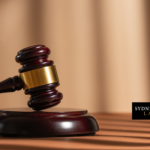Proposed Law could allow ASIO to use Torture when Investigating Terrorism

On September 18, ASIO conducted what has been called the largest anti-terrorism raids in our history.
Over 800 specially trained officers conducted raids on 25 houses across Brisbane and Sydney. Two people were arrested, and one charged.
While the threat of terrorism continues to make headlines, the government struggles to enact laws to counter the alleged threat.
The controversial ‘terror laws’ have received much criticism, but the government continues to proclaim that they are necessary to counteract the terrorist threat.
It has been a couple of months since new anti-terrorism laws were proposed, but the latest provision to be causing concern is section 35K.
Section 35K, which is in the National Security Legislation Amendment Bill (No. 1) 2014 would give ASIO immunity from liability and prosecution in some circumstances.
It has been pointed out that the provision could actually allow ASIO to use torture.
The law does not explicitly legalise torture, or authorise its use.
It does not even use the word ‘torture’, but it does say that any participants in special intelligence operations are excluded from civil and criminal liability as long as their behaviour does not:
- Cause death or serious injury
- Involve the commission of a serious sexual offence
- Cause significant loss of, or serious damage to, property
Torture is specifically forbidden in our national Criminal Code Act, in accordance with the Convention Against Torture and Other Cruel, Inhuman or Degrading Treatment.
Ordinarily it is punishable with 25 years imprisonment.
However, the proposed new law would mean that those who participate in special intelligence operations would be able to perform a wide range of acts that would constitute torture without any legal repercussions at all.
Examples of permissible acts of torture could include sleep and sensory deprivation, water boarding, electric shock, noise torture – all of which are tremendously distressful and inhumane.
While the government states that these immunities would be strictly safeguarded to prevent abuse, not all are convinced that these laws will adequately protect human rights.
Liberal Democrats Senator David Leyonhjelm says that he is ‘gobsmacked’ that such a law could be proposed in Australia and describes the provisions as ‘shameful’.
Shadow Attorney General Mark Dreyfus told AAP that if there was any ambiguity in the legislation, he would seek an amendment to make it clear that torture would not be allowed.
These proposals came as part of a broader package that was introduced to Parliament in July’s Bill.
The concern around the indemnity from prosecution for torture is just the latest criticism of the controversial Bill.
Another proposed law that has caused concern is the reversal of the onus of proof for certain terrorism charges, eroding the fundamental legal principle ‘innocent until proven guilty’.
If the law passes, Australians who travel to Syria or Iraq may have to prove that they weren’t involved in terrorist activity.
In Australia, courts can exclude evidence if it was obtained illegally or improperly, but section 35A(2) of the proposed bill counteracts this.
If the Bill is passed, evidence cannot be excluded just because it was obtained as a result of a participant engaging in criminal activity if:
- the person was a participant in a special intelligence operation; and
- the criminal activity was special intelligence conduct.
This is a massive change from the usual law, where police and other authoritative authorities are deterred from collecting evidence improperly or illegally, including from coercing people, because it may not be admissible in court.
What are your views:
Should we allow ASIO operatives to torture people?
Or should torture continue to be prohibited in all forms and circumstances?






